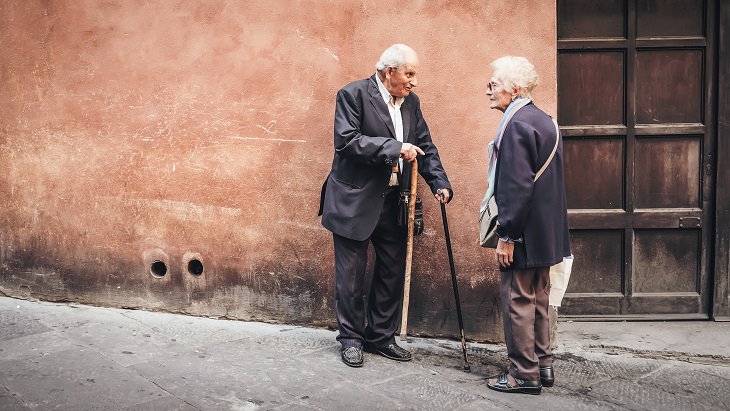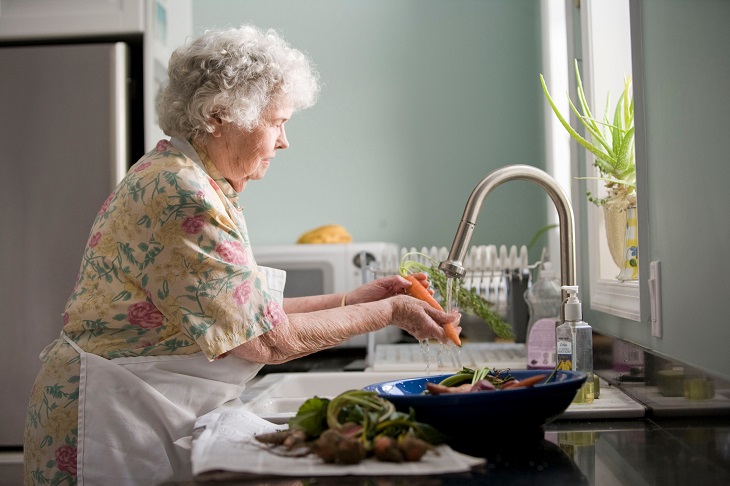As you get older, there are tons of changes that can occur in nearly every part of your body and mind. Some of these signs of aging can be relatively minor and won’t affect your day-to-day life, while others can have a significant impact on your quality of life. So, how do you treat “old age”? Luckily, there are plenty of ways to help keep yourself young (in body and spirit). Here’s a rundown of what you need to know for treating symptoms of “old age”.
What are the signs and symptoms of aging?
There are many symptoms that you might experience that are directly correlated to you getting older. Some of the most common include:
Wrinkles and age spots
These signs on your skin might increase as you age. You’re also more likely to experience dry skin because your body produces fewer natural oils as you get older. Your skin also thins and becomes less elastic, while the fatty tissue just below the skin decreases; this can result in you bruising much more easily.
Changes to your cardiovascular system
For most people, blood vessels and arteries stiffen as you age. This causes your heart to work harder to pump blood. The heart muscles have to adjust to working harder and your heart rate won’t increase much during physical activity anymore. These changes, however, do mean that you’re at an increased risk of high blood pressure (hypertension) and other cardiovascular issues.
Bones that shrink in size and density
Bones typically shrink as you age, which makes them weaker and more susceptible to fracture. This is also why it seems that some people get shorter the older they get.

Muscles that lose strength and flexibility
Weaker and less flexible muscles can end up affecting coordination and balance.Some older individuals are much less steady on their feet than when they were younger; older people are more likely to experience serious falls because of this.
Stiffness in joints
The severity of this can differ depending on the individual, but can be anything from minor stiffness to severe arthritis.
Minor effects on your memory
People can experience memory effects in different ways, such as temporarily forgetting the words for things or being less able to multitask. More serious memory problems like dementia and Alzheimer’s can develop in some individuals.
How can you reduce the symptoms of aging?
You don’t have to just sit back and watch yourself grow older. There are plenty of actions you can take to ensure that you’re staying healthy as you age. To help reduce some of your symptoms, try the following suggestions.
1. Use medical marijuana (MMJ) or CBD
MMJ can be a really helpful tool in combating aging. It can help with everything from chronic pain and loss of appetite to depression and glaucoma. MMJ products are also typically safer than taking prescribed medications and come with much fewer side effects.
If you’re wondering, “Is CBD good for the elderly?”, the answer is yes! CBD products are much easier to acquire than MMJ because they’re legal in all 50 states, and they can be relatively inexpensive (perfect for seniors on a budget). These types of natural products can be gentle on a senior’s system but also incredibly helpful in treating a variety of symptoms of aging.
2. Keep up an active lifestyle with regular physical activity
It’s absolutely crucial to stay active as you age. Moderate exercise can include a variety of activities, including walking, swimming, and yoga, which can all work to keep your heart healthy and prevent additional stiffness or muscle issues.
3. Stick to a healthy diet
Eating a nutritious diet is a key element of good health. Eat vegetables, fruits, whole grains, high-fiber foods, and lean proteins (such as fish) and you’ll be good to go. It’s okay to treat yourself every now and again, but try to limit foods that are high in saturated fat, sugar, or salt.

4. Don’t smoke
Maintaining a healthy lifestyle means you might have to give up some vices. Quit smoking and drinking in excess to make sure your body is able to function well. Smoking can impact your cardiovascular system and your lungs in significant ways, so kick the habit as soon as possible.
5. Get enough sleep
Most people don’t realize how critical good sleep is when it comes to a healthy lifestyle. Quality sleep can help restore your system at night and can heal and repair your heart and blood vessels. You should be getting at least seven to nine hours of sleep every night.
6. Use supplements like vitamin D and calcium
Supplements can help keep your bones strong. Adults should be getting at least 1,000 milligrams of calcium a day. For women 51 and older and for men 71 and older, the recommended amount goes up to 1,200 milligrams. It’s also a good idea to eat a calcium-rich diet full of dairy, broccoli, salmon, etc.
For vitamin D, adults should be consuming at least 600 IU. Adults over the age of 70 should be getting an intake of at least 800 IU. Seniors can get vitamin D from sunlight or food sources such as tuna and eggs.
For both calcium and vitamin D, seniors can also take a daily supplement to get the recommended dose.
7. Stay mentally active
While you focus on your physical health, it’s also important to take care of your brain health as well. To stay alert and sharp, doctors recommend things like reading, word games, new hobbies, or classes as a way to sustain memory and thinking skills. Make sure to remain connected to the world around you – it will help you stay mentally alert.
As you enter “old age”, it’s more important than ever to take care of your health. Follow the above-mentioned tips to help you treat symptoms of aging in a manageable, effective way!
Featured image by Esther Ann on Unsplash
